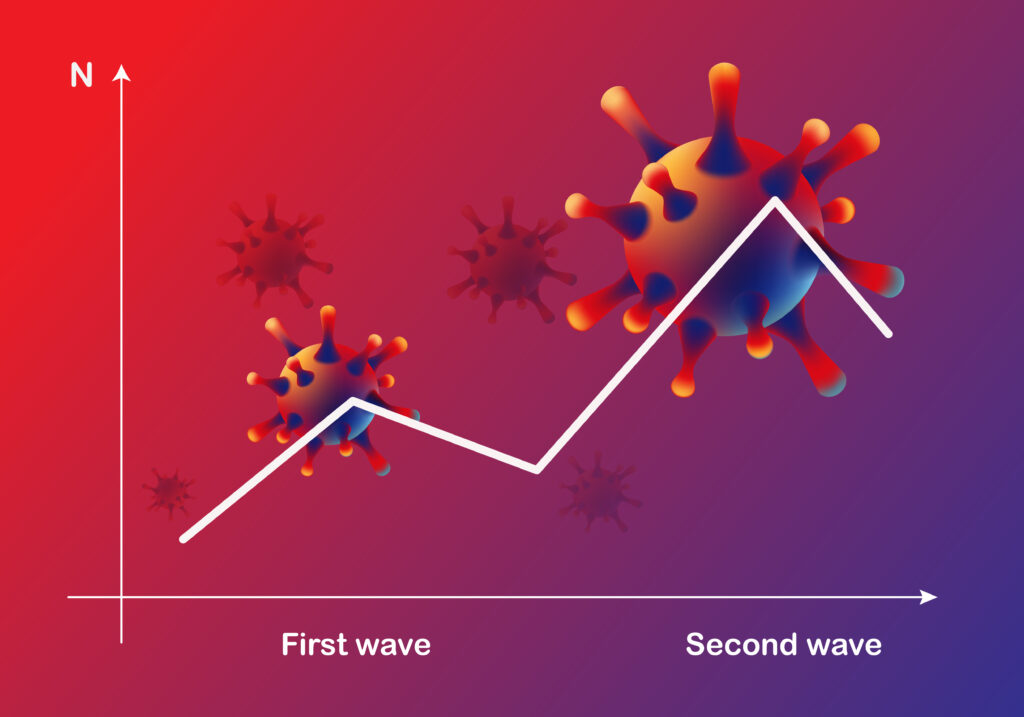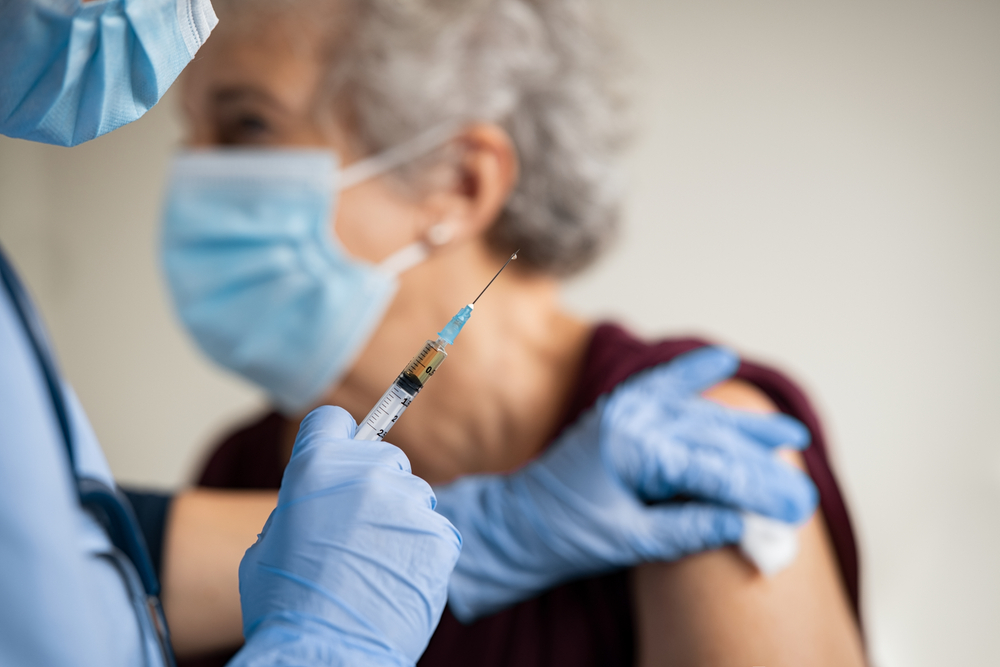The second wave of Covid-19, while leaving us reeling, has also renewed our commitment towards health and urged us to value our lives more than ever before, writes Dr Aditya Agarwal
The spring of 2021 was upon us. There was euphoria all around and there was a belief that the worst was behind us. Gloom and despair were giving way to optimism. Economic activity was beginning to pick up and people were happy to go back to their workplace. Public transport, the lifeline of any urban area, was slowly being opened up to all. Life had become a celebration and people were cherishing that with parties for any and every occasion.
People began socialising, something they missed for a majority of 2020. There were large congregations of people for elections, political and religious activities, and celebrations of different hues.
But just as life was returning to normalcy, we began to see a new spate of cases of Covid-19, one district at a time. The enemy had slowly and surreptitiously started to surround us. Each day brought new records. District after district was reporting rising numbers of cases.
Initially, the disease was sporadically showing up in small clusters where it affected certain towns and cities but was contained in that geographical border.
In the first such national surge we saw about 93,000 patients turning positive on a single day ie, September 16, 2020. However, this time around it was over a four-fold increase and we saw 4,14,000 patients turn positive on May 6, 2021.
Better geared
The experience of the first wave had taught us doctors several lessons, and we were better geared to manage the patients in the second wave. The number of patients treated at home vastly outnumbered number of patients treated in healthcare facilities. In the first wave a majority of the patients were treated in healthcare facilities due to Fear of the infection and unknown. The first lockdown had given us ample opportunity to enhance our hospital infrastructure and capacities to produce PPE’s and masks of adequate quality.
Manifestation of the Covid infection differs between people. Each individual is affected differently. Most people are asymptomatic or have very mild symptoms. Several people only realise that they have the infection when they test themselves either because they were in contact with someone with the disease or for a variety of reasons such as rejoining work or as a part of travel requirements. About 15% of the people infected have more profound symptoms such as breathlessness and dropping oxygen levels. Fever is an extremely important symptom of Covid.
Everyone should isolate themselves at the onset of the first fever because it is then that they start becoming infective to others. Hence no fever should ever be ignored. Fever is a very important tool for doctors to prognosticate the course of illness. Research shows that persons with prolonged fever have a more severe course of illness. Patients who ignored their first symptom of fever and would eventually have moderate to severe disease found themselves seeking medical help too late when the effective anti-viral drugs Would serve no purpose. Which worsening symptoms patients would chase the elusive beds in the large private hospitals.
Testing hesitancy
There was hesitancy to test for the fear of the unknown and the government forcing one to quarantine in the government run COVID Care centers. Images flashed in media portrait work conditions in the quarantine centers and hospitals which add it to the general distrust in government institutional care. Image after image was flashed on television screens and over instant messaging services showing poor quality of facilities or of dying people. This led to the general hysteria and fear of hospitalization. There was no word of calm or a reassurance from our leaders. They added to more confusion by very frequently changing rules and regulations along with hesitancy to take quick, effective and forceful policy making decisions.
Late intervention also meant greater need for pharmaceutical therapy which is expensive and due to a supply demand mismatch led to several drugs being repurposed for treatment. Lack of strong legislation against selling of drugs especially antibiotics over the counter led to people self-medicating. Armed with a poor general medical knowledge We Indians started consuming large quantities of vitamins, drugs to treat Helminthic infections and bubonic plague. To add to misery Alternative medicine has been promoted without clinical evidence and responsibility both medical and legal. Several management guidelines were issued but they were usually meant for hospitalized patients. But now, the new treatment guidelines issued have now done away with almost all drugs except a few which are really promising.
Failure as a society
Our nation, along with high levels of illiteracy has paid little attention to general medical knowledge. An average Indian has distrust of the existing medical systems. In a bid to promote alternative medicine, the government has lost the plot in boosting cutting-edge research and development.
Public health in our country has always received stepmotherly treatment from government after government because it does not help bring popularity.
We may have the largest pharma companies and we may be called the pharmaceutical capital of the world, but we have never invested in developing newer drugs or quality products.
Urban Indians have access to cheap and readily available healthcare from GPs of every hue and public healthcare facilities.
There has been little emphasis on quality of care. Even access to a specialist is available over a phone call. However, this ability of healthcare is not uniform. The medical personnel work long hours, see more patients and hence the quality of time and overall outcomes are poorer.
A large part of our society has lack of respect and mocks modern medicine. Several alternate forms of medical therapy were prescribed, and valuable time was lost. Thus, without timely intervention patients deteriorated very rapidly and when they could not be managed at home, they were rushed to hospitals which were already grappling with overflowing wards and ICUs.
Failure of government machinery
There has been an overall lack of quality communication by our leaders. They haven’t effectively guided us through the pandemic though they had access to knowledge accumulated and analysed by scientists of our country.
The frequently changing guidelines also added to confusion. In the first wave, we had the PM leading the charge but this time around, the baton was passed onto states to lead. However, the phased manner of lockdown actually allowed the Delta variant to wreak havoc.
The Delta variant (B.1.617.2) which was only recognised in May 2021 Is known to spread very aggressively with some resistance to treatment. This was evident in the fact that we had far fewer deaths when compared to the total number of populations affected by the disease in the second wave as compared to the first wave though there were several other confounding factors to.
Healthier lifestyle needed
Looking forward, humankind should strive to get the vaccine against COVID as soon as possible to reach levels of herd immunity. Only then shall we be able to break the cycle of transmission of this virus. We should encourage private businesses to invest and manufacture large quantities of these vaccines for the good of mankind. We Indians should take pride in being able to provide the vaccine to everyone on this planet. We as a nation should now start adopting healthier lifestyle with a focus on chronic illnesses such as hypertension, diabetes, disordered sleep disorders and other preventable diseases.
We often speak of lack of oxygen or lack of enough hospital beds, but there has been a general apathy towards building up of valuable and sustainable healthcare system.
When there was a sudden surge in the number of patients such that we saw four and a half times the number of patients turning positive on a single day as compared to the first wave. No hospital no doctor or no government, whether it be a municipal corporation or a state government or even the central government for that matter, could anticipate such a large need for resources. We can make provisions for 20 to 50% extra resources and utilising in times of contingency.
The government advisories for strict home isolation were repeatedly violated.
Today our society is more hopeful and expecting of the government. So, every time the wishes or expectations are not met people get critical of the government.
There was a little difference between the first lockdown into second. Before lockdown the Prime Minister had taken the onus of encouraging and motivating the people of the country to care for themselves protect themselves and their families.
I personally believe that the pandemic has renewed our commitment towards standards of health, health education, hygiene, personal safety, immunity and general fitness. It has urged us to reset our personal relations and value our lives more than ever before.









